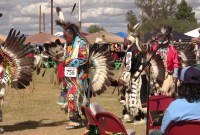The Round Valley Indian Tribes, a federally recognized tribe in Northern California, represent a unique and complex history of cultural convergence and resilience. This article delves into the story of the Round Valley Indian Tribes, examining their origins, the formation of their unique identity, and their ongoing efforts to preserve their heritage and sovereignty. The Round Valley Indian Tribes stand as a testament to the enduring spirit of Native American people in the face of displacement and cultural disruption.
A Confluence of Cultures: The Covelo Indian Community
The Round Valley Indian Tribes are often referred to as the Covelo Indian Community, a name that reflects the geographical location of their reservation. However, the term "community" undersells the intricate tapestry of cultures that have interwoven to form this distinct tribal entity. The tribes are not a singular, homogenous group, but rather an amalgamation of several distinct tribal groups, each with its own language, customs, and traditions.
The Yuki people were the original inhabitants of Round Valley, their ancestral lands encompassing the fertile valley and surrounding hills. Over time, however, the Yuki were joined by members of other tribes, often forcibly displaced from their own territories by the relentless advance of European-American settlement. These displaced tribes included the Concow, Little Lake and other Maidu groups, Pomo, Nomlaki, Cahto, Wailaki, and Pit River peoples.
This forced migration resulted in a dramatic demographic shift within Round Valley. The Yuki, once the sole inhabitants, found themselves sharing their land with a diverse array of newcomers. While the initial interactions were undoubtedly fraught with tension and hardship, the shared experience of displacement and the necessity of survival gradually fostered a sense of common identity. Intermarriage became increasingly common, and a shared lifestyle began to emerge, blending elements of the various tribal cultures.
From Displacement to Unity: Forging a Shared Identity
The process of forging a unified community out of disparate tribal groups was a complex and often challenging one. Each tribe brought its own unique set of beliefs, customs, and social structures. However, the shared experience of living on the Round Valley Reservation, subject to the policies and pressures of the U.S. government, created a common ground upon which a new identity could be built.
Over generations, the various tribal groups began to intermingle, adopting each other’s customs and traditions. The Yuki language, once dominant in the valley, gradually gave way to a more generalized form of communication that incorporated elements of other tribal languages. Traditional ceremonies and dances were adapted and modified to reflect the diverse cultural heritage of the community.
This process of cultural fusion was not without its challenges. Conflicts inevitably arose as different tribal groups vied for resources and influence. However, the shared experience of oppression and the need to present a united front to the outside world ultimately proved to be a powerful unifying force.
The Round Valley Reservation: A Homeland Forged in Adversity
The Round Valley Reservation, located in Mendocino County, California, serves as the heartland for the Round Valley Indian Tribes. The reservation was established in 1856, initially intended as a temporary refuge for Native Americans displaced by the expansion of European-American settlement. However, as more and more tribes were forced onto the reservation, it became a permanent homeland for the burgeoning Covelo Indian Community.
The history of the Round Valley Reservation is marked by hardship and injustice. The tribes were subjected to policies of forced assimilation, aimed at suppressing their traditional cultures and languages. Children were sent to boarding schools, where they were forbidden to speak their native languages or practice their ancestral customs. The tribes were also subjected to economic exploitation, as their land and resources were systematically taken from them.
Despite these challenges, the Round Valley Indian Tribes have persevered, maintaining their cultural identity and fighting for their rights. They have worked tirelessly to preserve their languages, traditions, and sacred sites. They have also been active in advocating for tribal sovereignty and self-determination.
Contemporary Round Valley Indian Tribes: Sovereignty and Self-Determination
Today, the Round Valley Indian Tribes are a self-governing entity, exercising their sovereign rights within the boundaries of their reservation. The tribal government is responsible for providing a wide range of services to its members, including healthcare, education, housing, and social services.
The tribes are also actively involved in economic development, seeking to create jobs and opportunities for their members. They operate a casino, a gas station, and other businesses on the reservation. They are also working to develop sustainable agriculture and renewable energy projects.
The Round Valley Indian Tribes face many challenges in the 21st century, including poverty, unemployment, and substance abuse. However, they remain committed to preserving their cultural heritage and building a brighter future for their children. They are actively working to revitalize their languages, traditions, and ceremonies. They are also working to strengthen their tribal government and promote self-sufficiency. The Round Valley Indian Tribes are a vibrant and resilient community, determined to thrive in the face of adversity.
The Round Valley Indian Tribes’ story is a remarkable one. It is a story of displacement, resilience, and cultural convergence. It is a story that speaks to the enduring strength and adaptability of Native American people. The Round Valley Indian Tribes stand as a testament to the power of community and the importance of preserving cultural heritage. The Round Valley Indian Tribes are a vital part of California’s cultural landscape. The Round Valley Indian Tribes community continues to adapt and thrive. Remembering the history of the Round Valley Indian Tribes is crucial for understanding California’s past and present. The Round Valley Indian Tribes‘ future is one of continued self-determination and cultural preservation.


